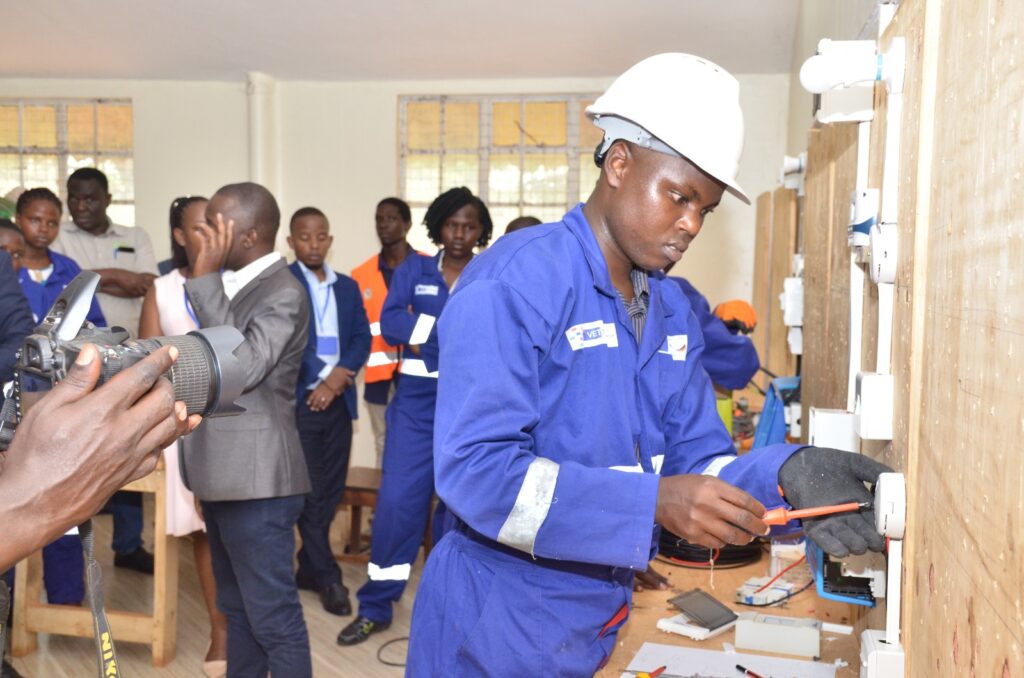Over 400 young individuals have been empowered through solar installation and Productive Use of Electricity (PUE) training sessions, a testament to the success of the ‘VET Toolbox’ project. This initiative, under the umbrella of the GIZ WE4D (German Development Cooperation – Employment Promotion for Women for the Green Transformation in Africa) program, is a collaborative effort co-financed by the European Union and the German Federal Ministry for Economic Cooperation and Development (BMZ). It aims to foster employment by enhancing skills in line with private sector investments and involves both private and public sector partners across 11 African countries.
In Uganda, the project’s focus was on Rural Electrification, centering on solar-powered mini-grids. The training, conducted by the AVSI Foundation, successfully imparted technical and business skills related to the productive use of electricity to over 300 participants in the Mpigi and Lamwo districts. Additionally, the SENDEA Association, collaborating with six Vocational Training Institutes (VTIs) and colleges, trained 101 solar technicians in advanced solar photovoltaic (PV) installations, and mini-grid operation and maintenance. These technicians were also equipped with essential solar technician toolboxes, and some secured internships to bridge their entry into the workforce.
Donald Agaba, Head of Program at GIZ WE4D, the project’s alignment with Uganda’s broader developmental goals said the project is directly contributing to the Uganda Vision 2040, an ambitious plan to transform Uganda into a competitive upper-middle-income country. He says, “By equipping young people with the skills needed in the green energy sector, we’re not just preparing them for jobs; we’re preparing them to be part of Uganda’s transformative journey.”

Project Manager Dauda Kimanayi emphasized Uganda’s untapped renewable energy potential and the importance of addressing energy access.
“Uganda is rich in renewable energy sources like solar, hydro, biomass, and wind. Yet, a significant portion of our population remains in the dark, impeding economic development. Mini-grids are a viable solution, particularly in rural areas where traditional grid extension is not feasible. They offer a sustainable path to electrification and development,” Kimanayi said.
Jennifer Anena, a beneficiary of the program, shared her experience and aspiration. She said she is now equipped to install solar power systems. “My message to young girls is clear: never give up on your dreams. With the right skills and determination, you can achieve anything,” she said.
Jona Osede, another participant, reflected on his personal motivation and the skills he gained saying, “Coming from Kumi, a district without electricity, I’ve seen firsthand the impact of living without power. This program has not only given me advanced skills in solar operation and maintenance but also a sense of purpose to light up my community.”
Paska Acan from Lamwo district, who received entrepreneurial and electrical training, spoke about her success. “Before this training, I was earning Shs 20,000 a day from my milling machine. Now, it’s up to 80,000. This increase has changed my life. I’ve hired two people, supported my children’s education, and I’m even planning to expand my business. This program has been a game-changer for me,” she said.
























